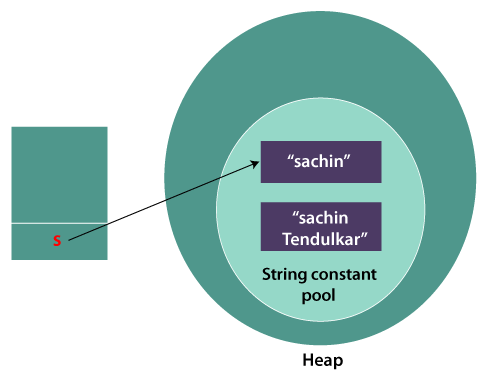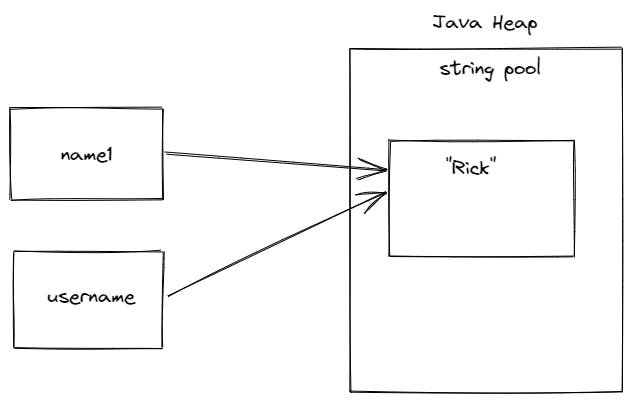Why Are Strings Immutable in Java? Checking Out the Style Decisions
Why Are Strings Immutable in Java? Checking Out the Style Decisions
Blog Article
The Advancement of Immutable String Handling: A Crucial Element of Software Application Growth
In the complex world of software program growth, the handling of immutable strings stands as a keystone that has gone through considerable evolution gradually. From its humble origins to the facility tests experienced in very early executions, the journey of unalterable string control has actually been a crucial element of software program design. As we navigate through the historic landscape of this essential idea, tracing the advancements, safety effects, and emerging fads, we discover ourselves at a time where the inherent value of understanding this evolution comes to be increasingly obvious.
Origins of Unalterable Strings
The concept of immutable strings traces back to the very early days of programming languages when developers sought to enhance the reliability and safety of information taking care of devices. Unalterable strings describe strings that can not be changed after they are produced. This fundamental concept was presented to attend to problems pertaining to information integrity and prevent unintentional adjustments to vital info stored as strings.

Furthermore, unalterable strings add to improving the general safety of software application systems (Why are strings immutable in Java?). By preventing unapproved celebrations from meddling with sensitive string information, immutable strings help minimize the danger of data breaches and unapproved access to confidential details. This foundational concept continues to play an essential duty in contemporary programming languages and stays a keystone of safe and robust software program growth techniques
Early Obstacles and Solutions
Navigating the landscape of very early software growth postured considerable difficulties in guaranteeing the honesty and safety and security of data handling systems. Among the main obstacles in handling unalterable strings was taking care of memory efficiently. In early systems, memory appropriation and deallocation were hands-on procedures, bring about possible memory leaks and vulnerabilities. Furthermore, ensuring that strings remained unchanged verified to be intricate, especially when several components of the codebase required to access and change data.
To resolve these challenges, designers began carrying out information file encryption strategies to shield delicate information stored in immutable strings. Encryption helped safeguard data from unapproved gain access to and control. Moreover, the intro of hashing formulas supplied a method to confirm the stability of immutable strings by producing distinct checksums based on their materials. If any type of modifications had taken place, these checksums permitted for fast contrasts to figure out. By integrating encryption and hashing methods right into the handling of unalterable strings, programmers considerably improved the safety and security and reliability of information within software program systems.

Developments in String Immutability
In software application development, a notable evolution in the handling of unalterable strings has emerged through innovations in information file encryption and hashing techniques. By employing secure hash algorithms like SHA-256 or cryptographic techniques such as AES security, designers can guarantee that sensitive details saved in unalterable strings stays protected and tamper-proof. These innovations have bolstered the integrity and confidentiality of information within applications, especially in sectors where information safety and security is paramount, such as finance, cybersecurity, and medical care.
In addition, developments in string immutability have actually paved the method click here for info for enhanced efficiency optimization. Immutable strings enable for more effective memory management and caching methods, minimizing the overhead related to constant string controls (Why are strings immutable in Java?). This optimization not just improves the general responsiveness of software application applications however additionally contributes to much better scalability and source usage
Protection Implications and Best Practices
With the foundation laid by innovations in string immutability, understanding the safety and security effects and implementing ideal methods comes to be paramount in protecting delicate information within software applications. Immutable strings play a vital role in improving safety by preventing unauthorized alterations to data, making certain data stability throughout the application's lifecycle. By using unalterable strings, programmers can minimize usual vulnerabilities such as shot assaults, barrier overflows, and information meddling, which are commonly manipulated by destructive stars to compromise systems.
To enhance safety and security even more, finest methods ought to be followed when managing sensitive info. This includes encrypting information at remainder and en route, carrying out appropriate gain access to controls, utilizing protected coding practices, and frequently updating software elements to patch well-known susceptabilities. In addition, designers ought to stick to the principle of least privilege, making certain that just needed go to this website consents are approved to customers and procedures. By including these safety steps and finest techniques into software growth processes, organizations can much better secure their information possessions and minimize the danger of safety and security violations and data leakages.
Future Trends in String Handling
In the middle of the ever-evolving landscape of software application growth, the trajectory of string handling is positioned to witness significant innovations and technologies. Developers are exploring new algorithms and data structures to enhance the rate and performance of string procedures.
In addition, an additional fad imminent is the assimilation of expert system (AI) and artificial intelligence (ML) in string handling jobs. AI-powered devices are being created to automate and enhance different string control procedures, bring about raised performance and precision in software application advancement process.
Additionally, there is an expanding his explanation emphasis on enhancing the security facets of string managing with advanced encryption techniques and secure coding techniques. As cyber hazards remain to develop, ensuring the honesty and privacy of data within strings is coming to be a leading priority for developers. By taking on robust security actions, such as file encryption at rest and en route, designers can reduce the threats related to string control susceptabilities.
Final Thought
In conclusion, the advancement of immutable string handling has actually been an essential element of software development, beginning from its origins to the innovations made recently. Early obstacles have been resolved with innovative services, bring about enhanced protection practices in taking care of strings. It is very important for programmers to stay upgraded on the most recent trends in string immutability to make certain the robustness and safety of their software program applications.
Immutable strings refer to strings that can not be altered after they are created. Why are strings immutable in Java?. By protecting against unauthorized celebrations from meddling with sensitive string data, immutable strings aid mitigate the danger of data breaches and unapproved accessibility to confidential information. By integrating security and hashing methods into the handling of unalterable strings, developers significantly boosted the security and dependability of data within software application systems
Unalterable strings allow for more reliable memory monitoring and caching approaches, lowering the expenses connected with regular string controls. Unalterable strings play an essential duty in boosting protection by protecting against unapproved modifications to information, making certain data stability throughout the application's lifecycle.
Report this page